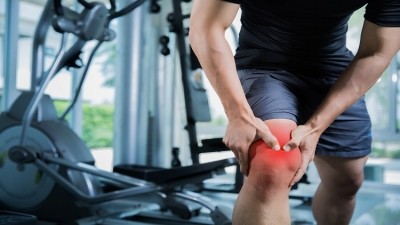Continuous intake of glucosamine needed to maintain joint health of endurance athletes: Study

A Japanese study has found that endurance athletes lose cartilage faster than non-athletes, and the intake of glucosamine for about three months is able to reduce this loss.
The study, published in the International Journal of Biological Macromolecules, was conducted by researchers from Juntendo University's Graduate School of Medicine and Graduate School of Health and Sports Science.
The researchers chose to study the effect of glucosamine on soccer and rugby players because they experience intense joint loading from playing these sports.
During the study, the urine level of type II collagen degradation marker (CTX-II) and the collagen synthesis marker (CPII) of these athletes were measured against that of the non-athletes.
For both soccer and rugby players, it was found that the urine level of CTX-II – which signifies collagen degradation – was “significantly increased” when compared with the non-athletes.
For the soccer players, their levels of CTX-II level were nearly thrice as much as the control group, while that of the rugby players was twice as much as the control group.
The ratio of collagen degradation to collagen synthesis was also higher in these athletes.
For example, the ratio of type II collagen degradation to synthesis (CTX-II/CPII) was about 0.15 in the rugby players and slightly more than 0.10 in the non-athletes.
“Endurance exercise such as soccer and rugby apparently loads on the components of joint (cartilage and bone), and enhances the cartilage and bone metabolism (type II and type I collagen degradation), and importantly, type II collagen degradation is relatively increased compared with type II collagen synthesis in these athletes as compared with non-athlete control,” the researchers said.
Effects of glucosamine
The consumption of glucosamine is able to cut down collagen degradation, however, it may not increase collagen synthesis, according to the findings.
To find out the effects of glucosamine, the athletes took different forms of glucosamine for different duration.
For the rugby players, they were administered with a jelly-type diet containing 3 g glucosamine/day for 16 weeks, while the soccer players were orally administered with glucosamine hydrochloride for 1.5g/day or 3g/day for 3 months.
For both groups, the daily consumption of 3g of glucosamine had reduced the ratio of collagen degradation to collagen synthesis. In the soccer players, the ratio had dropped from 0.15 to 0.10, while that of the rugby players dropped from about 0.18 to 0.10.
It was also shown that a higher glucosamine intake – at 3g/day as compared to 1.5g/day was more effective.
This is because the CTX-II level “returned to almost the pre-administration level after withdrawal of glucosamine administration in the 1.5 g/day-group, although the CTX-II level was still reduced in 3 g/ day-group.”
Collagen synthesis
While the study has shown that the consumption of glucosamine only slightly increased collagen synthesis, it was able maintain the level of collagen synthesis.
“These observations suggest that…Glucosamine demonstrates a chondro-protective action on these athletes by preventing type II collagen degradation but maintaining type II collagen synthesis,” the researchers concluded.
Source: International Journal of Biological Macromolecules
Chondroprotective action of glucosamine, a chitosan monomer, on the joint health of athletes
DOI: https://doi.org/10.1016/j.ijbiomac.2019.03.234
Authors: Isao Nagaoka, et al.

















